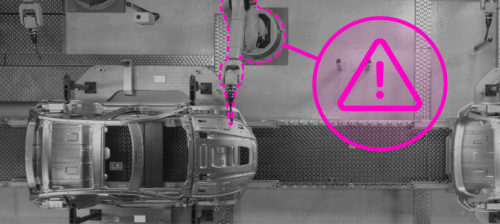Economy contracts, but is it bad news?
One economist contends this recession isn't as bad as in the past
One day when the federal government released a report stating the gross domestic product drop more than 6% in the fourth quarter of 2008, another manufacturing economist said that this recession should begin to ease up later in 2009.
“Unless the current doom and gloom becomes something of a self-fulfilling prophecy, the recession is on a par with past downturns and real improvement will start to manifest itself in 2010,” says Dr. Chris Kuehl, the economic analyst for the Fabricators & Manufacturers Association, International (FMA) in the latest FMA economic update newsletter Fabrinomics.
Kuehl bases his assertions on how the National Bureau of Economic Research (NBER) defines recessions. “The NBER has a reputation as being pretty conservative and reacts to factors beyond GDP to declare a recession,” Kuehl says.
After an analysis by Kuehl of government charts that track GDP, income, unemployment and production since 1970, he concludes, “It is pretty apparent the recession of 2008-09 is not worse than those in the past four decades. In fact, the recessions of the 1970s and 1980s were arguably more painful on almost every level.
“For example, real GDP dipped lower in 1975 and 1980, and unemployment rates were higher in 1981-82,” he adds. “The statistics also show that although this is no shallow and unimportant recession, it isn’t the worst we have been through — not by a long shot
The GDP fell 6.2% in the fourth quarter of 2008, the sharpest drop in production of goods and services since 1982. That cut the 2008 total growth rate to just 1.1%, but economists were divided on whether the latest figures signaled good news or bad news.
Regardless of the number, Kuehl acknowledges many U.S. businesses are suffering.
“To those who are frantically trying to hold their business together, the recession is as bad as it gets,” he says. “But for those who are trying to decide how radical they need to get to protect their business, a realistic assessment is needed. At this stage, the recession is on a par with what has been endured previously, which means it can and will be survived.
“The strategy now should be to hunker down and wait out the downturn — without taking steps that gut a company’s ability to react to the turnaround,” Kuehl says. “This means hanging on to valued employees who soon will be needed again. It means making those investments in capital goods that keep a company competitive, and it means staying true to strategic goals in marketing.
“If this is a normal recession people can overcome,
Do you have experience and expertise with the topics mentioned in this content? You should consider contributing to our CFE Media editorial team and getting the recognition you and your company deserve. Click here to start this process.





